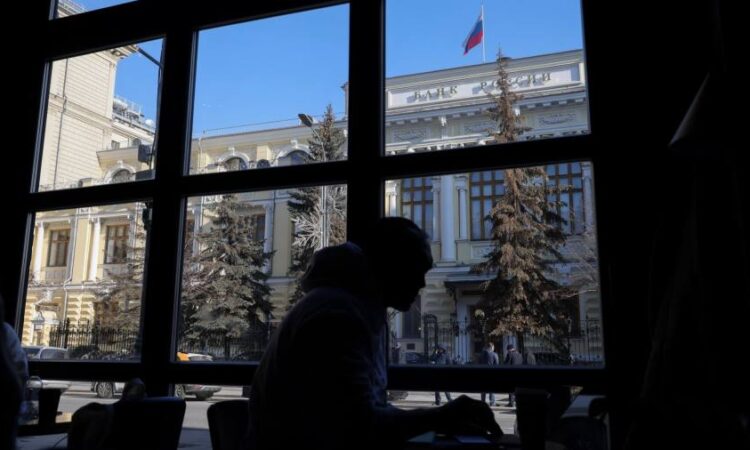
Receive free Central banks updates
We’ll send you a myFT Daily Digest email rounding up the latest Central banks news every morning.
Time is running out for Ursula von der Leyen to decide what to do with hundreds of billions of euros of Russian money.
In June, the European Commission chief promised a proposal “before the summer break” for making use of the “proceeds” from hundreds of billions of euros-worth of Russian central bank assets held in Europe — funds that have been frozen since the days that followed Russia’s invasion of Ukraine.
Yet so far commitments to make Russia pay have tended to shrivel on contact with objections from lawyers and the European Central Bank.
The region’s central bank fears any targeting of Russia’s foreign reserves to fund Ukraine would set a dangerous precedent for euro-denominated assets held by foreign governments. It would, the ECB warns, make other central banks nervous about whether their property rights would be upheld should their government one day fall out with Brussels, and encourage them to hold fewer reserves in the single currency.
It would be ironic if von der Leyen’s promise were to fail on these grounds. For what she is likely to propose is a measure precisely designed to overcome concerns surrounding the legality of touching Russia’s central bank reserves.
The most favoured idea in Brussels is instead to target windfall profits at central securities depositories.
These depositories hold securities in custody for investors — largely sovereign bonds in the case of central banks. By far the most important one is Euroclear, which holds about €180bn (close to two-thirds of all the immobilised Russian reserves), according to the government of Belgium, where Euroclear is located.
Investors in sovereign bonds receive, in cash, regular coupon payments and the face value amount borrowed when the bond expires. These cash streams are paid from Paris, Berlin or other treasuries to the likes of Euroclear. When Euroclear receives the cash, it credits the investor’s (in this case the Central Bank of Russia’s) cash account with its banking division.
So there are two cash balances at issue: the deposit with Euroclear bank — a liability on Euroclear’s balance sheet — and the matching cash held by Euroclear itself on the asset side of its balance sheet.
The key is that legally, only the central bank’s cash account in Euroclear belongs to Moscow. The cash on the asset side belongs to Euroclear.
Normally, cash does not accumulate; either the investor takes the cash out or reinvests it. But that is what the blocking sanctions prevent. As a result, Euroclear’s has nearly tripled its normal balance sheet — which gives rise to a nice arbitrage trade.
Euroclear pays little, if any, interest on the central bank’s deposit. But it can earn a cool 3.5 per cent by depositing its cash assets with eurozone central banks, the safest possible placement. The numbers add up: Euroclear reports making €720mn in profits on €88bn of Russia-related cash in the first quarter, an annualised return of 3.3 per cent. As more assets mature and cash piles up, this could stabilise at around €7-8bn a year.
No wonder Brussels is tempted by a levy on this windfall. But this outcome would be riddled with paradoxes. It would pit Ukraine against Euroclear’s shareholders, who would stand to benefit from the custodian’s bumper profit. They include Belgian insurers, global banks and European state-owned financial groups; Russia would be untouched. Besides the right to tax profits belongs to national governments, in this case Belgium, not the EU.
This solution would also cause a lot of upset for a negligible amount of cash. Why alienate the ECB and put off global reserve managers for what are, in the end, very small amounts compared to the cost of Ukraine’s reconstruction at $411bn and counting?
As one highly placed official puts it: “If you are going for the big prize, go for the big prize”. In other words, once you are going to meddle with the foundations of international central banking, you might as well confiscate the lot.
Perversely, the EU has manoeuvred itself to a point of maximal damage for minimal gain. As this contradiction sinks in, public opinion may well prefer the “in for a penny, in for a pound” argument. In any case, something will have to give.





